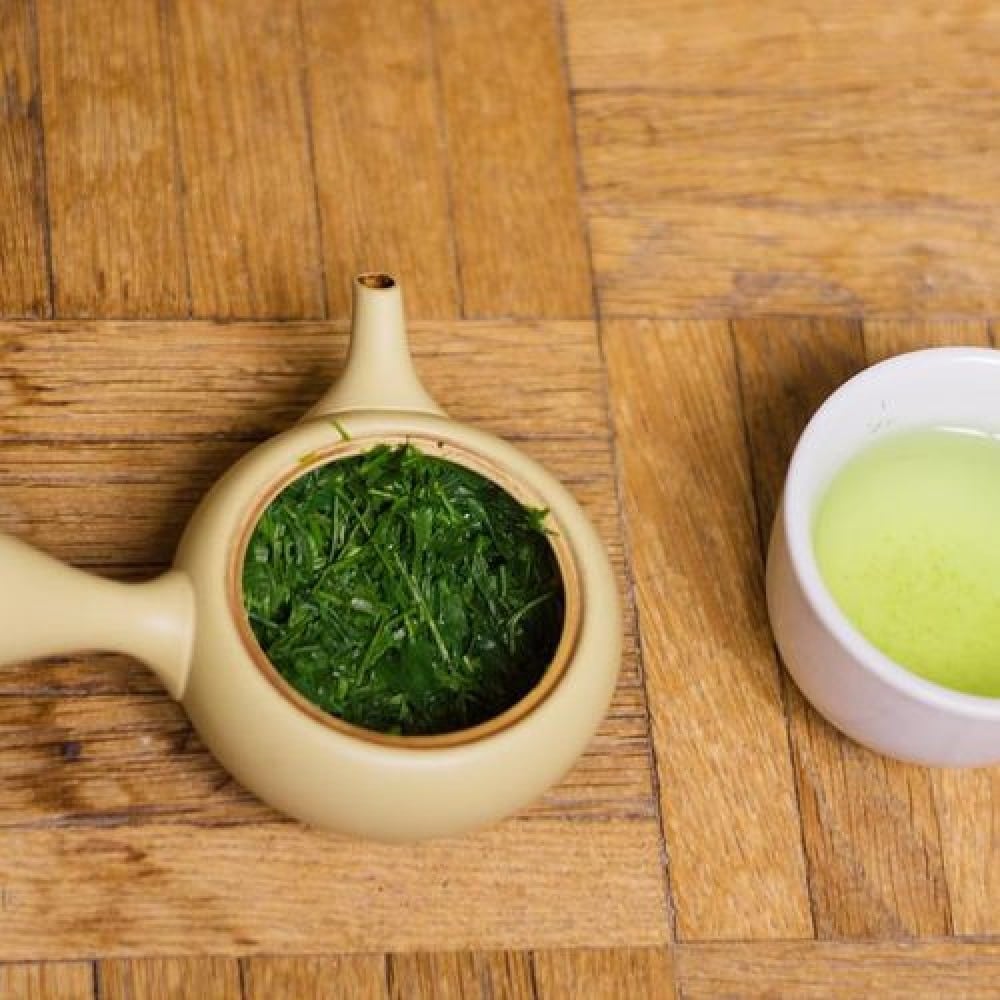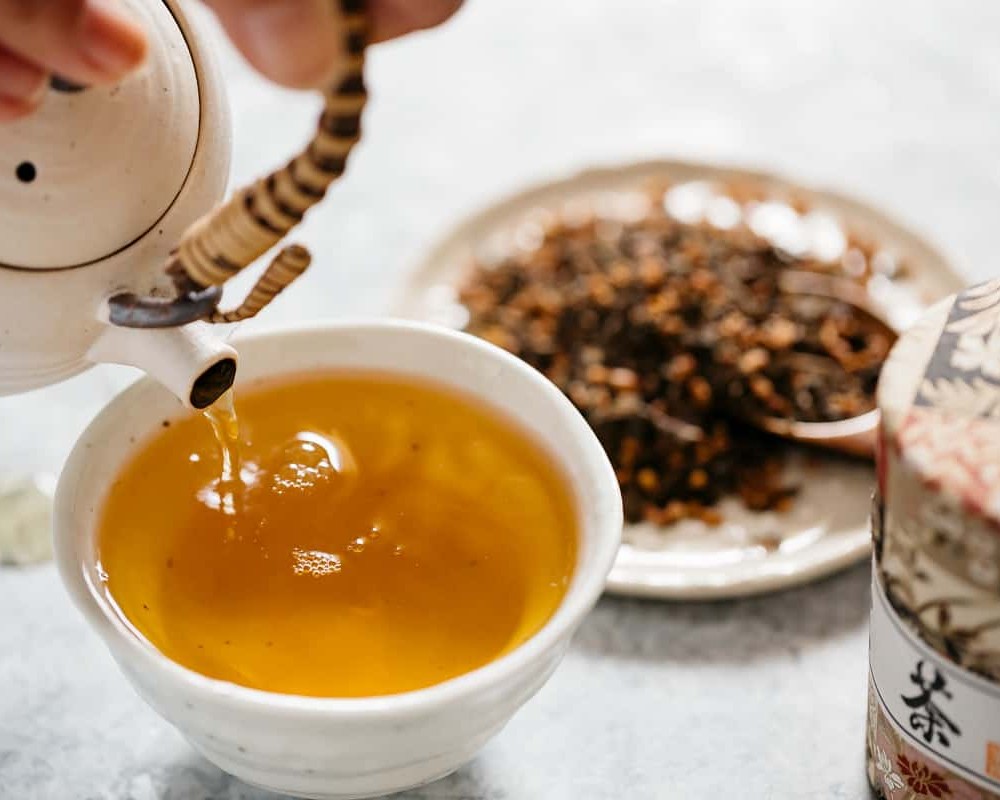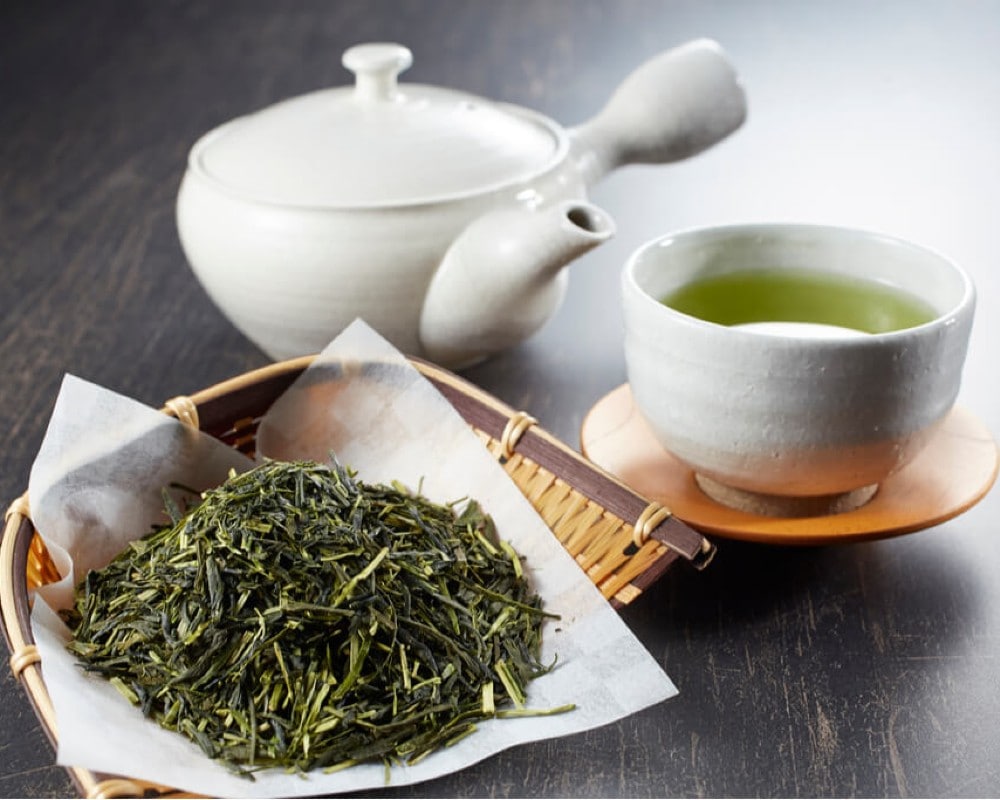
Tea is the second-most consumed everyday drink in the world. There are very few tea-growing regions as intriguing and varied as Japan, the country which has elevated drinking tea to an art form. Here are a few varied types of Japanese tea and everything you need to know about them.
Gyokuro
Gyokuro is a Japanese green tea that tastes more like a rich sip of seaweed broth or soup than conventional tea. This deep green-hued nutrient-dense tea is highly elegant, with a structural depth and rich texture reminiscent of consommé or dashi broth. Gyokuro needs long steeping times at very low temperatures for a fragrant brew. This expensive tea tastes smooth and umami-rich with a delicate sweetness.
Hojicha

Potent yet approachable, Hojicha is a type of roasted green tea produced in Japan. This amber-hued tea pairs well with savory and sweet meals alike. This tea is flexible to brew, without any need to worry too much about specific parameters. With very low amounts of caffeine, lightly roasted Hojicha expresses notes of marinated fresh green olives, while when heavily roasted it tastes smokey and woodsy.
Matcha
Matcha, almost synonymous with Japanese green tea, is stone-ground finely-powdered dried tea leaves. With rich antioxidants, a well-made ceremonial grade Matcha features a smooth and even layer of foam on top, a creamy feeling in the mouth, and a fresh sweet aroma. Well-crafted Matcha has raw nutty notes like walnuts and almonds, with a cotton candy-like sweetness. Drinkers can also encounter a subtle balance of earthy bitterness and umami notes.
Sencha

Sencha is the most consumed green tea in Japan. With a generally bright stewed vegetable flavor, this vibrant green-colored tea is ideal as an everyday choice. Sencha needs a short steep time in warm water. This tea features a wide range of flavors with production style and region determining its taste profile. On the lighter side, Sencha includes taste notes of dried hay, fresh grass, and white floral notes, while a richer version has notes of forest moss, dried nori, or razor clams.
Genmaicha
This Japanese tea has an approachable light, slightly sweet flavor. Thanks to its unique blend of green tea and popped rice, Genmaicha features a round texture with a slightly toasted profile. Genmaicha is flexible to brew, giving the drinker the freedom to adjust brew time or temperature to preference. With an equal ratio of rice to tea leaves, Genmaicha features a bit of warmth and grain, with notes of barley, dry popcorn, stewed vegetables, and dried nori. This tea is especially enjoyable while served iced.